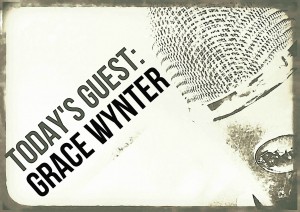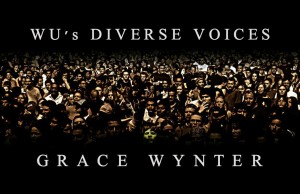Posts by Grace Wynter
Photo by Andreas Palmer on Unsplash
I had been planning it for months. That Monday morning I was up early, dressed, and ready to make the ten-second commute down the hall to my home office to begin my first full day of self-employment. I was excited, caffeinated, and ready to work my assets off. And for the first few hours, it was glorious.
By the afternoon, though, my back was aching, my neck was stiff, and I had eaten an entire bag of chocolate-covered almonds. Not a promising start to entrepreneurship. Fortunately, I have a sister who is an occupational therapist, and when I mentioned my aches and pains she dropped by my office, assessed my workstation, then gave me some advice. Her first bit of advice was “Stop buying chocolate-covered almonds.” Then she got down to business pointing out several ways I could use ergonomics to optimize my workstation. I took her advice and experienced immediate relief. I’m sharing some of that advice with you today.
Ergonomics is an applied science that deals with improving efficiency and safety through product design and arrangement. Whether your daily word count goal is 50 or 5,000, incorporating ergonomic design into your workstation is a must. Utilizing ergonomics can help reduce injuries caused by repetitive movement and can help alleviate things like eyestrain, back pain, and headaches.
Despite chatter that says otherwise, optimizing your workstation doesn’t have to break the bank. In fact, a large component of ergonomic design involves improving how we sit, stand, and move through our workstations.
So how can writers use ergonomic design to help optimize their workstations?
Read MoreTherese busting in on Grace’s post to toss some confetti; this is her first post with us as an official WU contributor!
Grace Wynter is a copyeditor, blogger, writer of romantic women’s fiction, and a huge fan of shenanigans. Her blogs (and a few of her shenanigans) have been featured on CNN.com, the Huffington Post, and More.com. Grace has an MBA from Georgia State University and is currently enrolled in The University of Chicago’s Professional Certification in Editing program. When she’s not writing, she’s helping other writers on her blog, The Writer’s Station.
Her latest project is co-creator of Storyboard, a new podcast that follows two writers as they explore the ways stories shape lives, and tackle long-held beliefs about the intersection of craft and commerce.
WELCOME, GRACE!
As a child, Bruce Wayne witnesses his parents’ murder. Aware of Krypton’s pending destruction, Kal-El’s father places him in a spacecraft that makes a crash landing on planet earth. T’Challa vows to avenge his father’s murder and prove he can lead a nation.
I can already hear you asking what you, as a writer, could possibly have in common with Batman, Superman, and Black Panther. More than you might think. I’ve been a fan of superheroes since I was a kid. The fangirling only intensified as I got older, and I have the Wonder Woman caped socks to prove it. But, it wasn’t until recently, when I was asked to talk to a classroom full of superhero-loving fifth graders about writing, that I made the connection between the personal stories of writers and those of superheroes.
Origin Stories
Dictionary.com defines an origin story as, “a backstory, or established background narrative that informs the identity and motivations of heroes and villains in a comic book or similar fictional work.” Writers hear about origin stories all the time as they relate to the characters we write, but what about our own origin stories? What about the events in our lives that most inform why, how, and what we write? I believe that identifying our own origin stories can help us find our voices as writers, allowing us to give the fictional characters we create, more complex, multidimensional lives. So, what do our origin stories have in common with those of superheroes? And, once we identify them, how can we use our origin stories to our advantage?
Five Things to Understand About Origin Stories
1) We all have them. While our own origin story probably doesn’t involve murder, kryptonite, or African chiefs, it does exist. We’ll usually recognize it by the emotional muscle memory it evokes. An emotional muscle memory isn’t like the muscle memory that gets us out of the office parking lot and into our driveway on autopilot at the end of a long day. No, an emotional muscle memory is one that makes our stomach drop and our scalp tingle. It’s the physical response we experience when recalling our worst heartbreak or the moment our favorite teacher saw promise in our work. It’s the sensitive kid who, afraid of being teased about her accent, dons a “cloak of invisibility” and quietly observes the interactions around her, filling her […]
Read MoreToday’s guest is Grace Wynter, a blogger and writer of romance and women’s fiction. Grace spends much of her non-writing time tinkering with WordPress websites and working on completing her professional editing certificate with the University of Chicago. When she’s not alternating between the Marvel and DC universes, she resides in Atlanta, Georgia.
I probably could have had my first novel done and dusted by now if I hadn’t allowed these three P’s to nag at me for the past few years. If my words can save a few writers a few tears, and years, then my agony wasn’t in vain.
Connect with Grace on her blog, on Twitter, and on Facebook.
Pressure, Perception, and Probability: The Holy Trinity That Stymies the New Writer
Hi, my name is Grace, and I write new adult romance.
If you think that sounds like a confession or an introduction at a start of a meeting where anonymity is king, then you already know where I’m headed. In an industry that often snickers at romance, and where new adult that’s not Divergent or The Hunger Games is looked down on with derision, admitting that you write in the genre can sometimes open up the proverbial can of literary whoop-ass.
If you’re a seasoned writer you’ve probably run out of damns to give about what other writers think of you. But if you’re working on your first book and find yourself struggling with the expectations of what kind of writer you’re supposed to be, then join me at this meeting, and let’s commiserate about three of the things that, if we’re not careful, can end our writing careers before they even start.
Pressure
I remember the first time I was inspired to write fiction. I was reading Jane Austen’s Persuasion for the umpteenth time and thought how wonderful it would be to write a modern version set in the south. Not long into that endeavor I realized that I, my dear writers, am no Jane Austen.
Read Morephoto “Unity in Diversity” by Flickr’s fady habib
Therese here to introduce a new series here at WU, and explain its evolution. I recently visited the WU Facebook group and opened the floor to pitches: If you could write a post for WU, what would it be and why? Replies poured in–too many great ideas to use this summer, in fact–and in short order a theme began to emerge. Maybe it was inspired by the recent Supreme Court ruling on same sex marriages, but many of the pitches were tied to DIVERSITY.
We don’t talk about these issues as much as we should, do we? But we’re all very different, and those differences go beyond age and race and sexual orientation. We do not all have the same emotional experiences or voices or passions or fears. We are not all looking for the same experiences as writers–or as readers–and that’s ultimately a great thing.
So let’s start talking.
It’s my honor to host this series on Writer Unboxed and to introduce our first guest.
Grace Wynter is a blogger and writer of romance and women’s fiction. She spends much of her non-writing time tinkering with WordPress websites and working on completing her professional editing certificate with the University of Chicago. When she’s not alternating between the Marvel and DC universes, she resides in Atlanta, Georgia.
“I wanted to address the issue of diversity on WU because I believe it’s a community created by and consisting of the kinds of storytellers and writers who can lead the charge in bringing the issue of diversity to the larger writing community.” – Grace Wyter
You can learn more about Grace on her website, and by following her on Twitter and Facebook.
Why Diversity in Publishing Matters
Diversity’s a topic that’s being floated around a lot these days. For those on the “outside” of the conversation, all the diversity talk can seem like much ado about nothing. In fact, on a romance writer Facebook page I follow, when an admin recently posted a survey about diversity in romance novels, one of the first commenters responded with, “Oh, come on!” Apparently, she’d had her fill of diversity talk. That this reader would have such a frustrated response to something so important is disheartening, especially when you consider that at its simplest, most organic level, those of us seeking diversity in publishing desire something very basic: to see words, images, and stories that are inclusive in nature, in the very mediums that helped shape our lives.
Toni Morrison Made Me Do it
Toni Morrison said, “If there is a book that you want to read, but it hasn’t been written yet, you must be the one to write it.”
It was only about three years ago that I realized I wanted to write fiction, but I’ve been reading it for as long as I can remember. Specifically romantic fiction with its star-crossed lovers and impossibly happy endings. As a teenager and later as a new adult, I devoured romance novels. But as much as I enjoyed those stories, something was missing. I read about blondes and brunettes, blue and green-eyed girls who, in the end, always […]
Read More- « Previous
- 1
- 2
- 3












